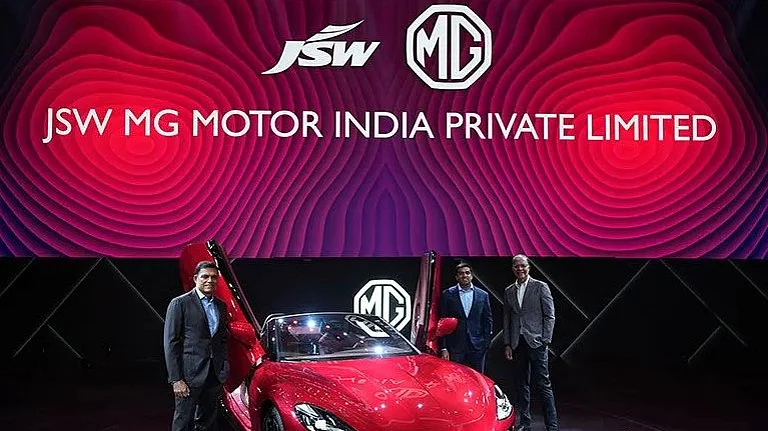JSW Group, led by Sajjan Jindal, is in talks with Japanese and South Korean firms to form a JV for battery cell manufacturing in India.
The move follows China’s export restrictions on critical cell and anode technologies.
The venture will support JSW’s new energy vehicles, large-scale energy storage, and renewable integration initiatives.
JSW Group in Talks to Form Battery JV with Japanese, South Korean Firms
The planned joint venture will cater to several segments within the JSW Group, including new energy vehicles (such as plug-in and strong hybrids), large-scale energy storage, and renewable integration, as per the report
The Sajjan Jindal-led JSW Group is reportedly planning to form a joint venture with Japanese and South Korean companies for battery cell manufacturing in India. The move comes amid Chinese restrictions on critical cell and anode technologies.
According to the Economic Times report, the group is in talks with Japanese and South Korean firms, both of which are willing to set up manufacturing bases in India.
The planned joint venture will cater to several segments within the JSW Group, including new energy vehicles (such as plug-in and strong hybrids), large-scale energy storage, and renewable integration. The venture may either operate under an existing group entity or be established as a new promoter-led company, depending on strategic alignment.
JSW already has strong industrial ties in Japan and South Korea through collaborations with JFE Steel and Toshiba, which have enhanced its technological capabilities. The company is in advanced talks to source cell technology from either Japan or Korea, with the partnership expected to take the form of an equity alliance rather than a simple technical or licensing arrangement.
JSW MG Motor India, a joint venture between China’s SAIC Motor and the JSW Group, aims to expand its EV portfolio to strengthen its position in the market, where it currently ranks second after Tata Motors.
Separately, JSW Motors, a wholly owned subsidiary, is preparing to launch its own range of new energy vehicles (NEVs) through licensing agreements with international automakers. Its upcoming facility in Sambhaji Nagar, Maharashtra, will manufacture electric vehicles, battery packs, and eventually, battery cells.
JSW Motors plans to invest $3 billion over the next five years in developing NEVs, with the first model expected to debut in the second half of FY26. The planned cell manufacturing joint venture will serve as a key pillar in this integrated value chain, ensuring both technology access and supply stability for JSW’s EV and energy storage operations.
China Squeeze
In July, China tightened export controls on key technologies used in electric vehicle battery production, aiming to consolidate its dominance in the global EV supply chain. The new rules require government licences for transferring technologies related to lithium processing and battery manufacturing abroad.
The move followed earlier restrictions on rare earth materials and comes as Chinese firms face trade tensions with the US and tariffs from the EU. China currently holds about 67% of the global EV battery market, but the new controls could complicate its manufacturers’ overseas expansion plans.

